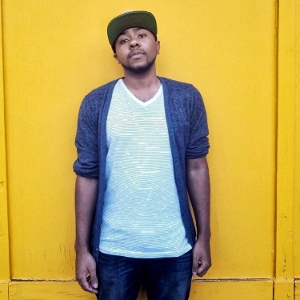
I’m Not an Ancestor Unless Someone Comes After Me
Contributor’s Marginalia: Cortney Lamar Charleston on “Ancestors” by Adrienne Su
We see them as old, but they were thirty once,
thirteen. They’re dead, not aged. They seldom
imagined us; we were unknowable, an idea.
Today would have been my paternal grandfather’s birthday, something I’m reminded of when my own father re-shares a Facebook post from four years ago, a video of my grandfather blowing out his birthday candles to mark his 92nd lap around the sun. He is as I remember him, whether by choice or the circumstance of our overlapping time, and I write this as I am now, perhaps as he never imagined. I read this poem and the ghosts are called from the walls. Akin to its speaker, I’ve always been sensitive to the memories of people I cannot remember, whose names I do not know and yet I know them so well, somehow. How? I think for a moment, and then write the word imagination in blood on a sheet of paper that had the compassion to cut me.
↔
One earthquake, one defeat of a dynasty,
and we could be wiped from the future.
It’s 2017, and I am nowhere near the Asian continent, look nothing like what Adrienne Su looks like. It’s 2017, and Donald J. Trump is President of the United States, defeating what some had already been calling the Clinton political dynasty. It’s 2017, and we could be wiped from the future—my people, I mean (whatever that means), who are still under attack in the same ways they always have been, and as such, I am just like my ancestors: this is why I know them so well. Imagination already has my blood; imagination, take my body, too.
↔
Some centuries, they fought off invaders
(human, insect, microbial) but embraced
the concept of heaven for being practical,
a way of eliciting virtue, without being gullible
enough to trade this life for the hereafter.
I’m so desperate for something good I’d be willing to die for it, and I’m not the only one that’s true for. I feel I’m so undeserving of goodness, I go through with living just to earn it, and I’m not the only one that’s true for. In the end, I hope I didn’t fail and I hope the ones that tried to harm my loved ones and me did.
↔
When it was time to send sons and daughters
across the Pacific, they let them travel and thus
ensured the survival of the people, minus
the land, and later, the language. This is how
I have a contentious history with water. I have a contentious history with the English language. I believe these two things go without saying, I believe this should be a surprise to nobody with any curiosity about the world they live in. Here’s one thing I’ve discovered while I’ve been out there: even if you have only one option in front of you, you’re still making a choice. My folks, themselves, where pulled to Chicago from the Deep South, and they simply didn’t fight the vector of the force, leaving behind the land they knew, though the language had been lost several generations before. This is how I happened, though I can’t say this is how we survived.
↔
is trying this place, which feels like nowhere,
which is how the creation myth always begins,
with emptiness wanting to be broken.
I try this place (city, state, country, planet) and it tries me in return. Which of us will break first? Will what rises because of it be worth it?
